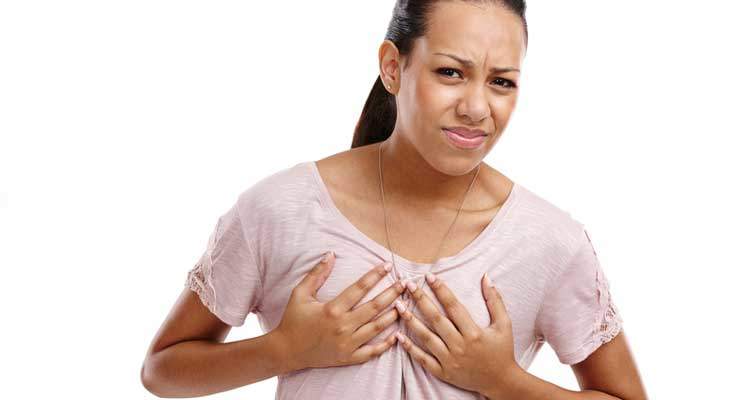The enlarged breasts associated with pregnancy might be the one weight gain you are enjoying. Even if you like the look of your new chest, the pain that comes with it might be more than you can bear sometimes. Breast pains & pregnancy go hand in hand and are often one of the first symptoms a woman notices before she pees on the stick.
Breast Pains & Pregnancy
When Your Will Feel It
Many women start to feel breast tenderness or pain in the first weeks of pregnancy. Unfortunately, this is during the same time as a normal period, when breast pain might also occur. Breast pain that continues for weeks might be a sign of pregnancy. Throbbing pain might occur the edges of the breast. Tingling in or around the nipples might accompany the pain. The breast pain may range from tenderness to intense pain.
What Causes the Pain
Breast pain during pregnancy is a direct result of the increase of hormones in your body. According to the Ohio State University Medical Center, estrogen, as well as follicle stimulating hormone, luteinizing hormone, prolactin, oxytocin and human placental lactogen, flood a pregnant woman’s body and encourage breast growth, causing pain.
Why The Pain is Good
Breast pain signals a pregnancy, leading a woman to verify and seek medical consultation. Breast pain can contribute to a mom’s early intervention to care for her child. Your breasts grow and tingle as they prepare to be filled with milk to feed your baby. When the pain starts to bother you, remember the healthy benefits and bonding time your breasts are preparing for your child.
What Else You Will Notice
The breast pain may come with other symptoms. Your nipples may grow and darken. They may start to expel milk. Although this normally happens near the end of a pregnancy, it could happen any time during the gestation. This early milk may ooze out with a yellow tinge. If your breasts feel hot or unusually tender, consult your doctor to ensure you don’t have an infection. Otherwise, this yellow fluid is likely colostrum, a normal early milk full of immunity-building nutrients.
Finding Relief
As your breasts start to feel heavy and bouncy, invest in a nursing bra that will support the full breasts. While you may not want to purchase a lot of maternity clothes, a bra will serve you even after you give birth and will relieve pain throughout the pregnancy. Look for a bra that comfortably holds your whole breasts to avoid any rubbing or chafing that could cause more pain. A bra pad insert will help with the early milk.
Breast Pains & Pregnancy






